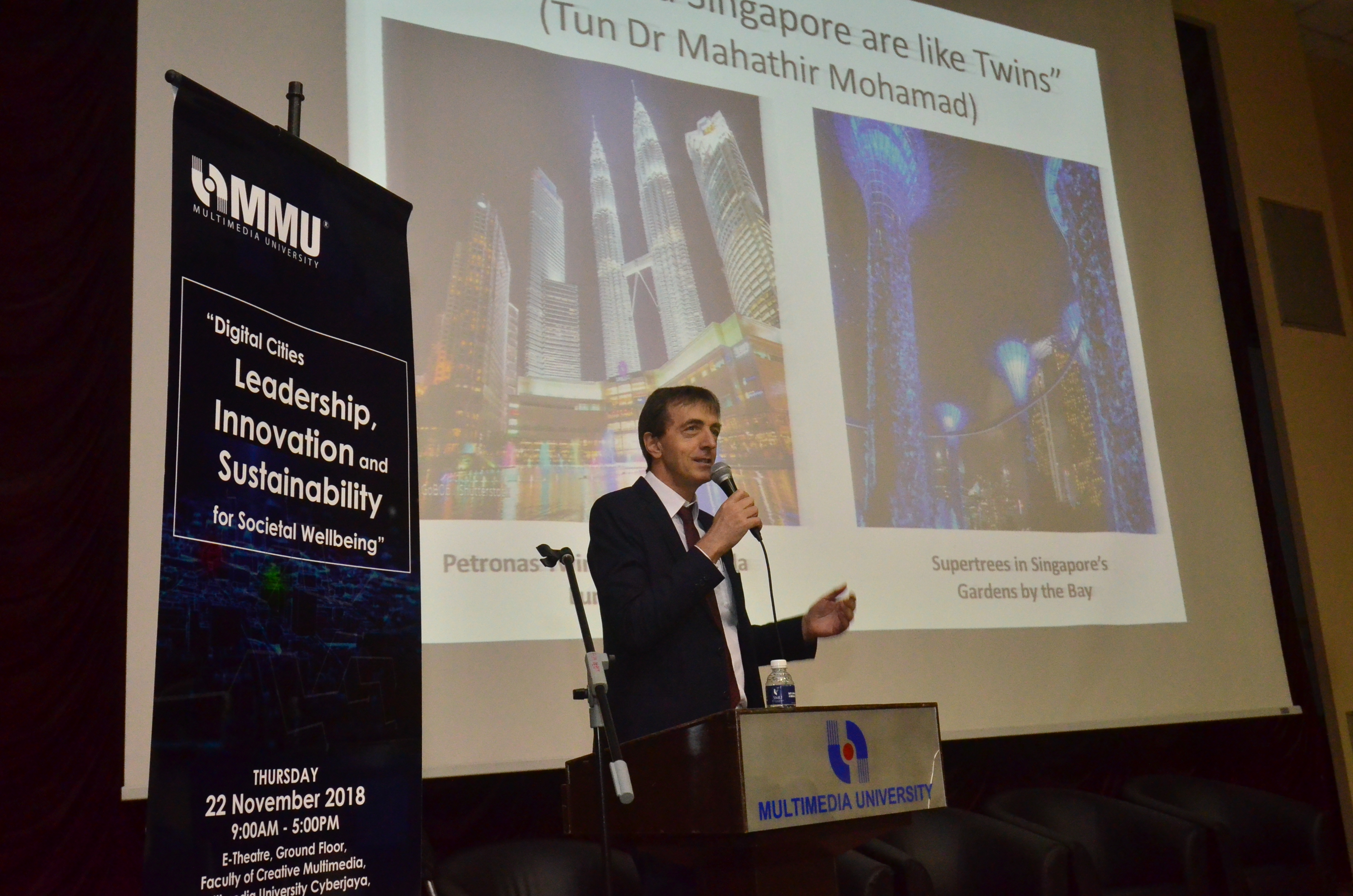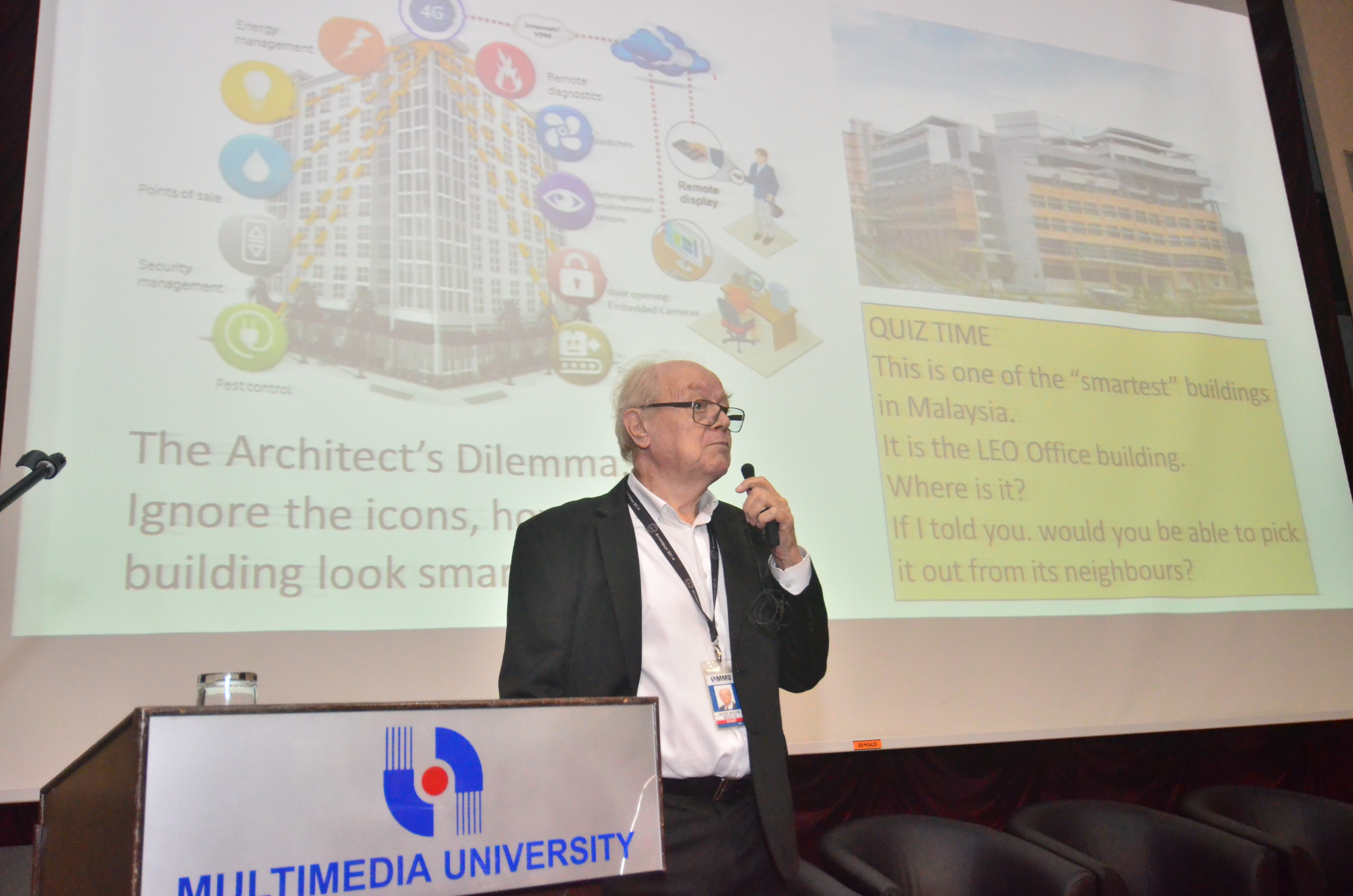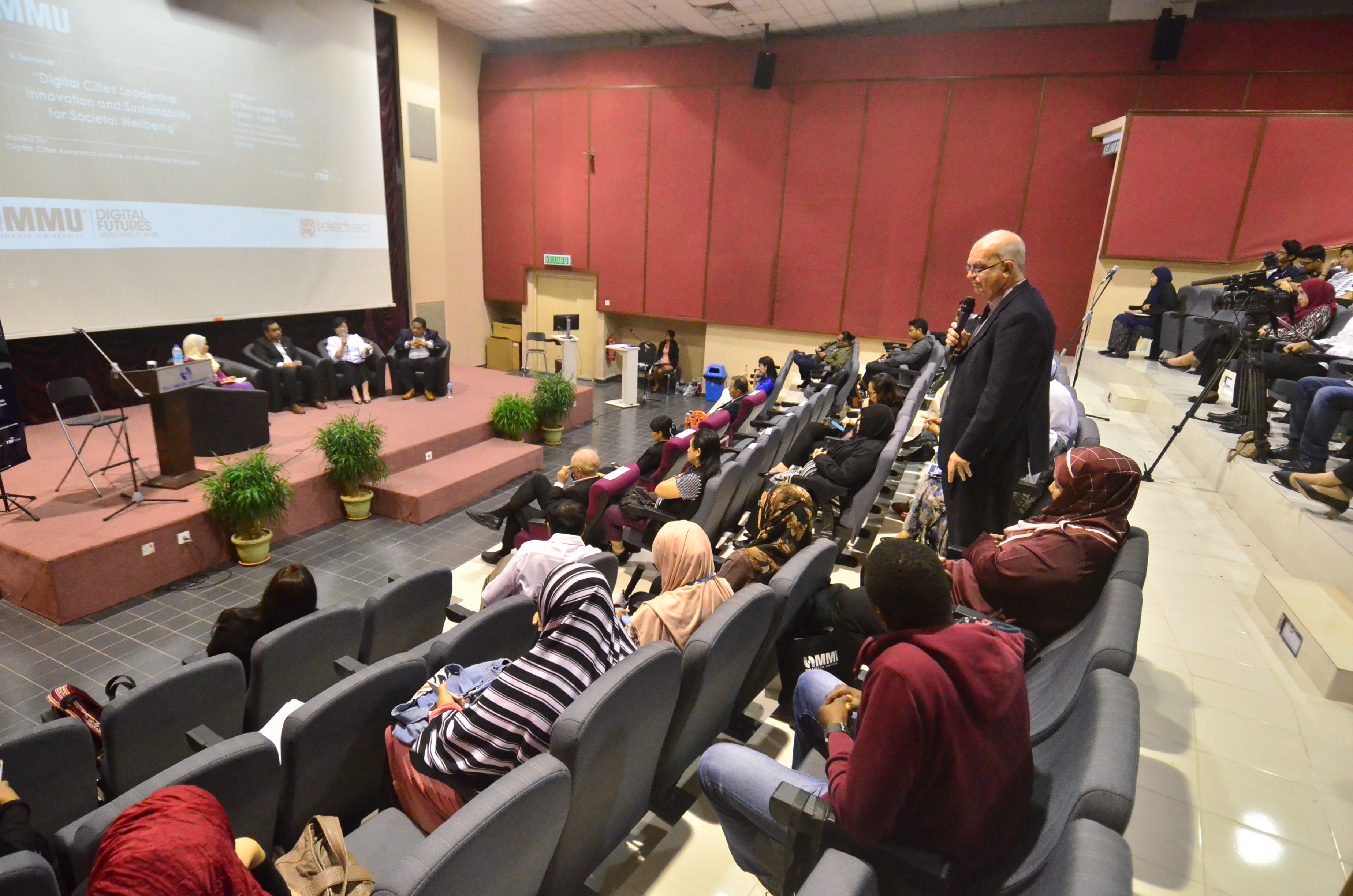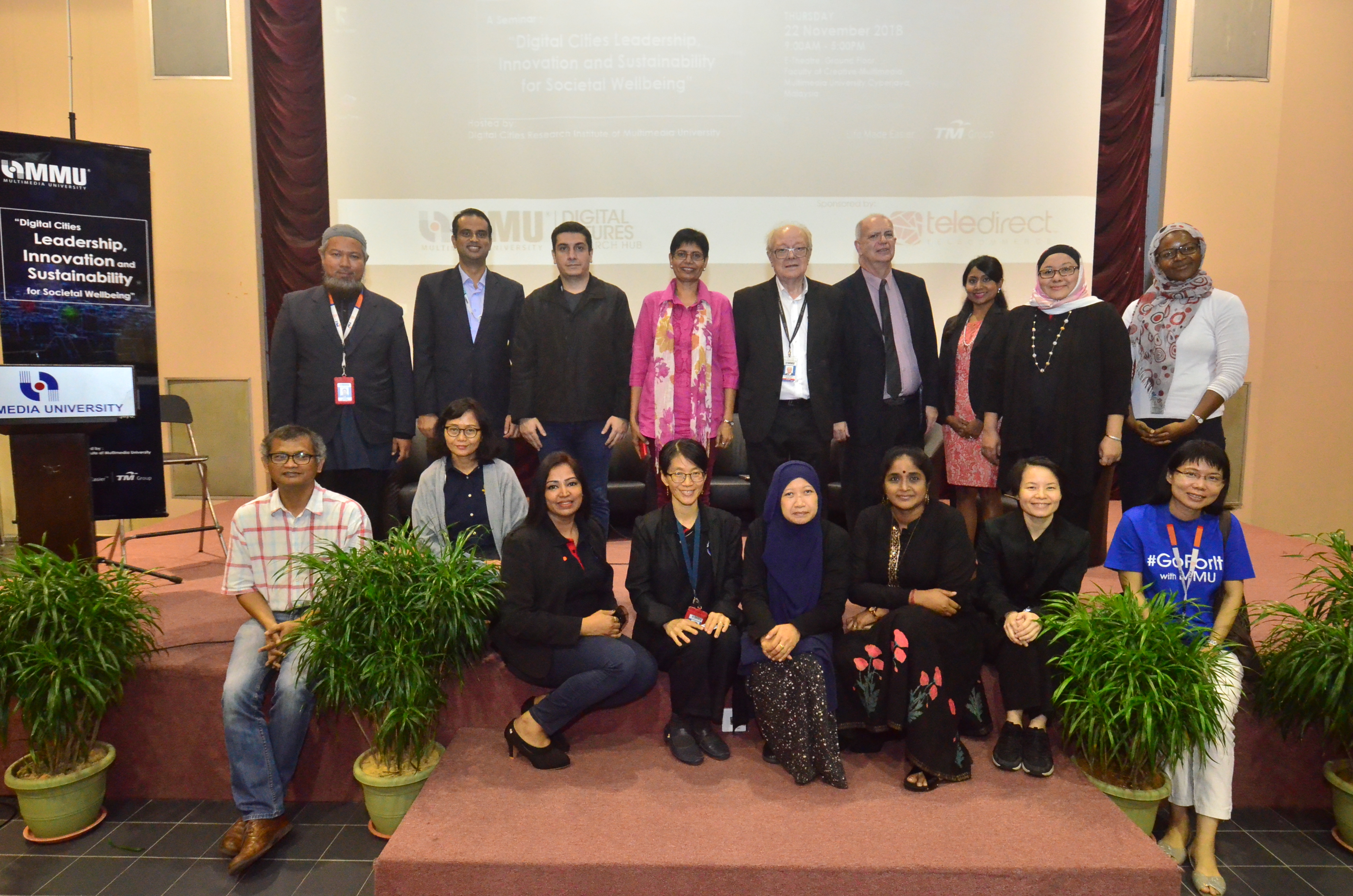A total of 130 participants from government, public and private sectors including Multimedia University (MMU) staff and students attended a seminar entitled “Digital Cities Leadership, Innovation and Sustainability for Societal Wellbeing” at the e-Theatre, MMU Cyberjaya, recently.
The seminar was an initiative from Digital Cities Research Institute, an interdisciplinary research organisation of research scholars and postsecondary educators from MMU. This seminar was set to achieve the objective of sharing the quality of leadership, innovation and sustainability and formulating digital cities’ wellbeing, happiness and sustainability framework for Malaysia. Teledirect Telecommerce, a leading provider of Business Process Services sponsored the event which was concurrently supported by exhibitors from Setia Haruman, icycle, PhD project by Mr. Fauzan Mustaffa, and Rapid Appraisal by Dr. Alan Downe.
The morning session involved the attendance of the distinguished keynote speakers were Prof. Dr. Thomas Menkhoff (Singapore Management University), Mr. Richard Ker (Cyberview Sdn. Bhd.), Mr. Anthony Ng Volunteer (Taiwan Buddhist Tzu Chi Foundation Malaysia), and none other than our own home-based intellect Prof. Dr. Peter Charles Woods (Digital Cities Research Institute Director, MMU). The term “smart cities” is not just about innovation, but it is also about improving lives. Lessons from Singapore, Barcelona, Berlin, and Talinn aspiring to be “smart cities” can be adapted to address innovation as an inclusive process by its citizenry. The focus should be on reducing environmental damage by providing a sustainable built environment, zero-carbon strategies, intelligent mobility systems and renewable energy supply.
The afternoon session of the seminar witnessed a forum moderated by Dr Alan Downe, MMU Research Fellow. The panelists were Mdm. Ezatul Effendee from TM ONE, Ms. Munirah Looi from Brandt International Sdn. Bhd., Mr. Ahmad Soalahuddin Al-Thani B. Ahmad Termizi from Setia Haruman Sdn. Bhd. and Mr. Adlan Azhar from Frost & Sullivan, Asia Pacific. The discussion during this interactive session focused on ways to achieve quality and sustainability in digital cities innovation by concentrating on the three essential ingredients, namely an accessible talent pool with the skills and vision needed to innovate, implement and manage new technologies; the community engagement and acceptance of technological transformation; and finally the high level of integration between platforms, systems and applications with over-arching community development priorities.




